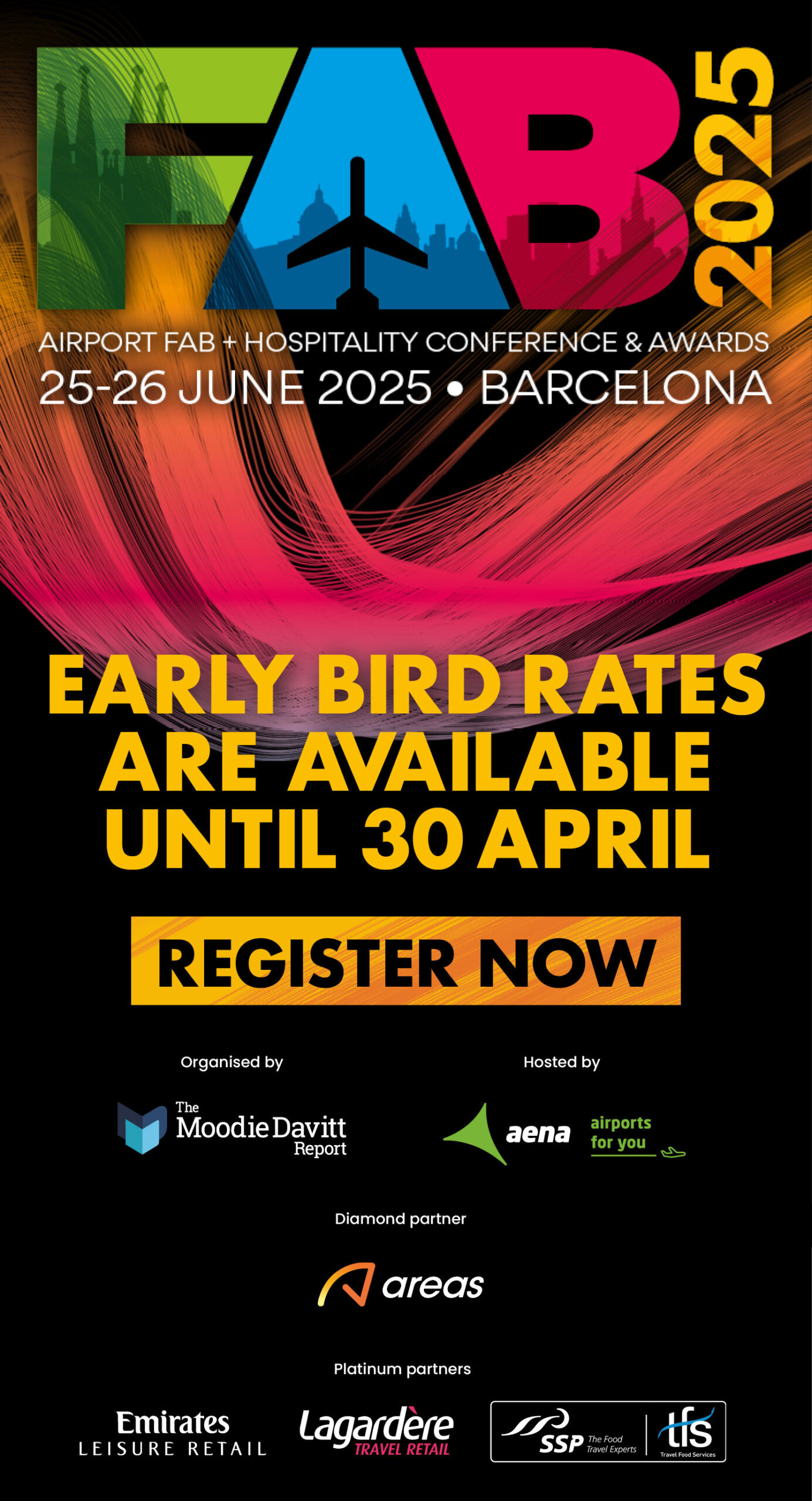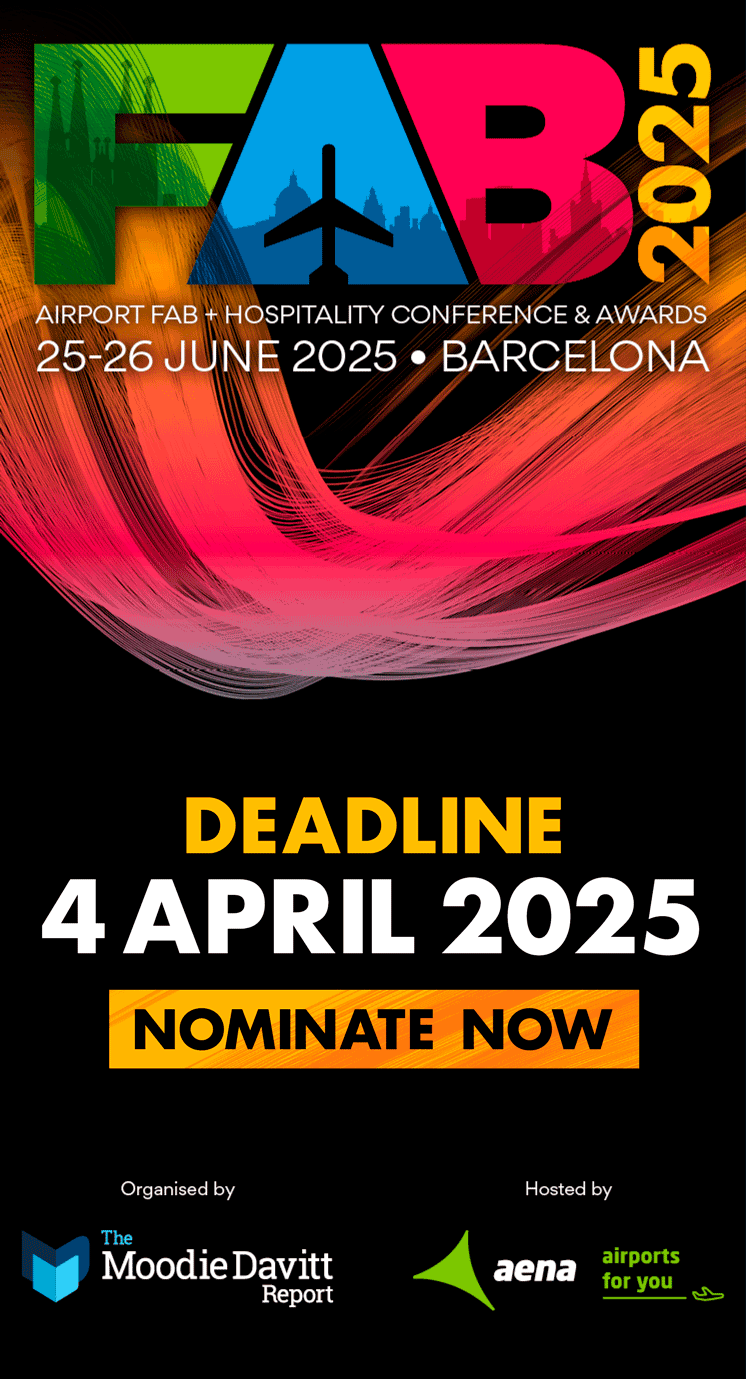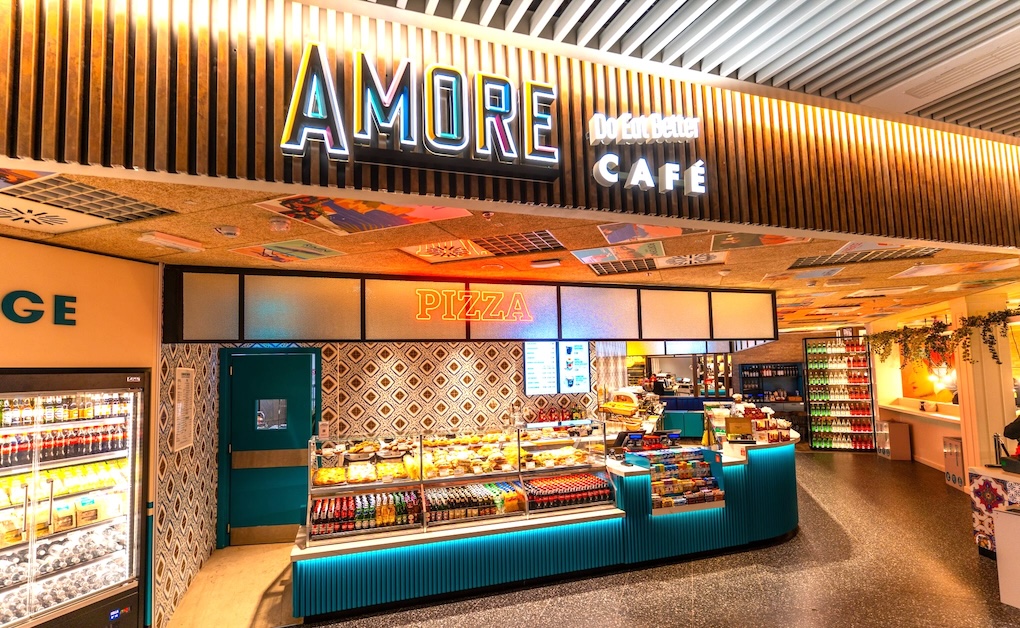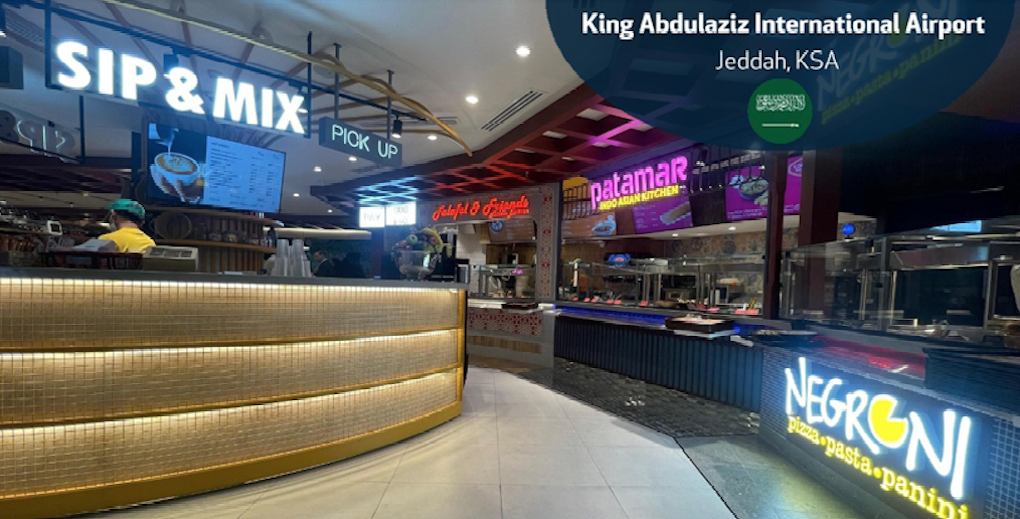INTERNATIONAL. Welcome to our detailed highlights of the Airport Food & Beverage (FAB) Conference. The event, organised by The Moodie Davitt Report, took place online on 12-13 September, concluding with the FAB ESG & Superstars Awards.
DAY TWO (13 September)
F&B insights and trends (10:00 EST 16:00 CET 22:00 HK)
Chef, mixologist and pioneer, Kathy Casey, had a clear message for FAB viewers today when summing up what airport F&B operators need to do to get passengers into their restaurants: “Make it fun, make it big.”
Casey is the owner of Kathy Casey Food Studios–Liquid Kitchen, a global food, beverage and concept development agency that specialises in airport concessions, hotels, cruise lines and multi-unit consultation.
In an engaging presentation, Casey explored current and emerging trends in F&B and how these translate into the world of airports and travel retail locations. She shared many actionable ideas on how to make food interesting and appealing, illustrating them with successful examples of how these have been executed in the airport space.

Asked about the need to have more healthy food and drink options available to consumers passing through the airport, Casey said: “A lot of airport restaurants say they have healthy menu items, but [in reality] they’re not really healthy. Adding lettuce or avocado does not mean it is healthy, so I think we really need to take a hard look at the recipe development aspect of this and create items that are genuinely healthy, that are lower in calories.
“I would suggest that airport restaurants create a couple signature dishes that are truly healthy, that feature great crisp greens for example. Having this in your salad makes a huge [nutritional] difference. There are many successful salad concepts now at airports, and the food is delicious – these places are busy. So jump on that train and add a couple of those [healthy signature dishes] to your menu.”
Giving her views on the question of value in airport F&B and negative consumer perceptions of dining expenses in the airport, Casey emphasised the higher costs of operating in the environment. She also suggested that airport users need to be educated on this reality, possibly via a marketing campaign.
“I think that when people come to the airport they have a preconceived notion that they’re going to get ripped off, that they’re going to pay too much, they are going to be overcharged. It’s already in their minds.
“I believe there needs to be education for the customer [about the costs of delivering F&B in the airport environment]. But it’s also about the experience – if you have a great experience, then I think you will see the value.”
Changing the status quo for airport concessions (09:00 EST, 15:00 CET, 21:00 HK)
The challenges of labour, debt and revenue, and what recovery looks like in the short and longer term were key themes of a special session at FAB today.
Co-hosted by the Airport Restaurant & Retail Association and The Moodie Davitt Report, it offered an opportunity to discuss the continuing challenges presented not just by the COVID-19 crisis but also by the nature of the market’s underlying structures.
Speakers included Seattle-Tacoma International Airport Acting Aviation Chief Operating Officer Dawn Hunter, Salt Lake City Department of Airports Executive Director Bill Wyatt, Crews Hospitality CEO and Managing Partner Nick Crews and SSP America Deputy CEO Pat Murray.They were joined by ARRA Executive Director Andrew Weddig and moderator Dermot Davitt, President of The Moodie Davitt Report.

On how Salt Lake City Airport has cooperated with partners, Bill Wyatt said: “We decided early on that we would offer financing for build-out, if our partners wanted it. I’m not sure if this is the future but airports have access to capital that is better than other actors in the system.
“In addition we were flexible on term. We issued RFPs on fixed terms but that was pre-pandemic. Then we extended to recognise the difficulty of opening through the pandemic. We are also looking at our airline use agreements. We are talking to our key airline partner about a long-term agreement to the 2050s with a revenue-sharing agreement. Some variation on that is where this business has to go.”
Hunter said: “What the pandemic has shown us is that we are all in this together. I feel that the model of the past 20-30 years is not working. MAG was designed to protect the airport from under-performance but it’s not an insurance policy.”
Crews noted: “How do we move the conversation on and test some of these theories now? Rethinking term is one factor. We also need to align airports and concessionaires with term extensions by hitting some thresholds. That means we can drive a dynamic programme. We also need to think about financing for smaller players so that they can be more involved. Build-out cost needs addressing, whether that is overseen by the airport. There are so few contractors that they can drive their prices up.
“Rethinking MAG is vital. Paying that set amount up front every month really hurts our cash flow over those first 15 days. And through that process we have to look at each party’s role.”
Murray said that business has simply become more complex. “We are settling back at 85-90% of previous sales but it’s not all like for like. We have about 55% of staff levels today that we had going into the pandemic, though we haven’t grown too much over the Summer. How do we attract people to work in kitchens again? There are changes to the environment. There is pressure from all sides for all of aviation, and many unknowns still. Who will be flying in October? We don’t yet know.”
Designing the consumer-friendly, responsible future of F&B: (07:30 EST 13:30 CET 19:30 HK)
Smart Design’s CEO & Creative Director Nick Baker and Interior Designer & Project Manager Jill Danis joined Dermot Davitt to give a designer’s view of the future of travel dining, with an emphasis on how sustainability fits with airport, concessionaire and consumer trends.
“Every single airport design project that we’re working on has an environmental sustainable action plan attached to it,” said Baker, who discussed at length the challenges that sustainability brings from energy supply down to the demolition at the end of an F&B concession’s life cycle.
“It’s not something where you just can do one or two things,” said Danis. “You have to cover all the bases – everything has to be sustainable. Our clients are quite engaged with the sustainability side of things, they are on board.”

Driving the sustainability aspects of airport F&B projects is made simpler by the fact that the stakeholders all have specialists devoted to the subject. Baker explained: “Every single brand or operator or airport authority has a team dedicated to sustainability, environmental, etc, and for some it’s very much at the forefront. The collaboration on sustainability needs to be from day one.”
In practice, delivering the sustainability, and other, airport F&B project requirements has been made more difficult in recent times by escalating costs and supply chain issues which are affecting the speed of delivery and hitting project budgets, Baker noted.
He said: “Our biggest issue with the industry still remains the capital costs involved, and especially in the US market. I’m quite outspoken about it, because it is not sustainable for the future.”
To illustrate this, Baker revealed that the average cost of build-out at airports under the jurisdiction of the Port Authority of New York and New Jersey is in excess of U$3,000 a square foot. “It’s crazy,” he said. “I’m hoping that over the next year or two, it can finally begin to come under some form of control.”

He added: “We do have escalating cost and material issues, even down to equipment and being able to get anything quickly such as kitchen equipment. Even buying a simple toaster right now is a six month wait.”
These high build-out costs are leading to some Smart Design clients to explore the conversion of existing spaces, rather than building on new spaces in the airport, according to Danis.
She said: “We’re trying to encourage them to keep services in the locations that they are already in, in some cases, even retaining some of the previous equipment, rather than starting from scratch.
“That cuts demolition requirements, construction costs and brings the whole project cost down as well. That’s a more sustainable approach. So it’s sort of a win-win for everyone.”

Both Baker and Danis emphasised that there is a push from airports and concessionaires to deliver more locally-themed F&B projects and the experiences that they can deliver.
“It’s definitely all about having that unique experience,” said Danis. “I think a lot of what really works well is the local aspect. And that’s not just throwing local art on the wall, but experiences that are born from the brands that you’re using in the space.
“So local restaurants, local drinks, local products, and integrating that right through the passenger’s whole journey, so that you’re almost bombarded with these new and unique moments. Sustainability factors into that, local sourcing is a sustainable approach to retail. So I think that’s when the strategy really comes together.”
Travel Food Services on catering for the new consumer (06:00 EST 12:00 CET 18:00 HK)

Leading Indian market player Travel Food Services Executive Director Varun Kapur talked about the experience of coping with COVID-19, its priorities and strategy in the recovery phase and how the future of airport hospitality looks post-crisis.
On the trends that will influence the F&B industry in India and beyond, Kapur said: “Health and wellbeing is so important and the offer needs to reflect that for customers. We introduced Ayurvedic herbs, which were never part of the F&B offer. To enhance ease and convenience, we’ve launched QR codes and new kiosks at gates. In fact, 5% of all business in Delhi airport come from kiosks now.”
In terms of CSR, Kapur said: “We’re always thinking about what we do and how to do it better in terms of sustainable sourcing, minimising food waste and our carbon footprint. During the pandemic, our ‘Karuna Seva’ initiative saw our teams step up and make food for essential workers and the poorest of the community.”
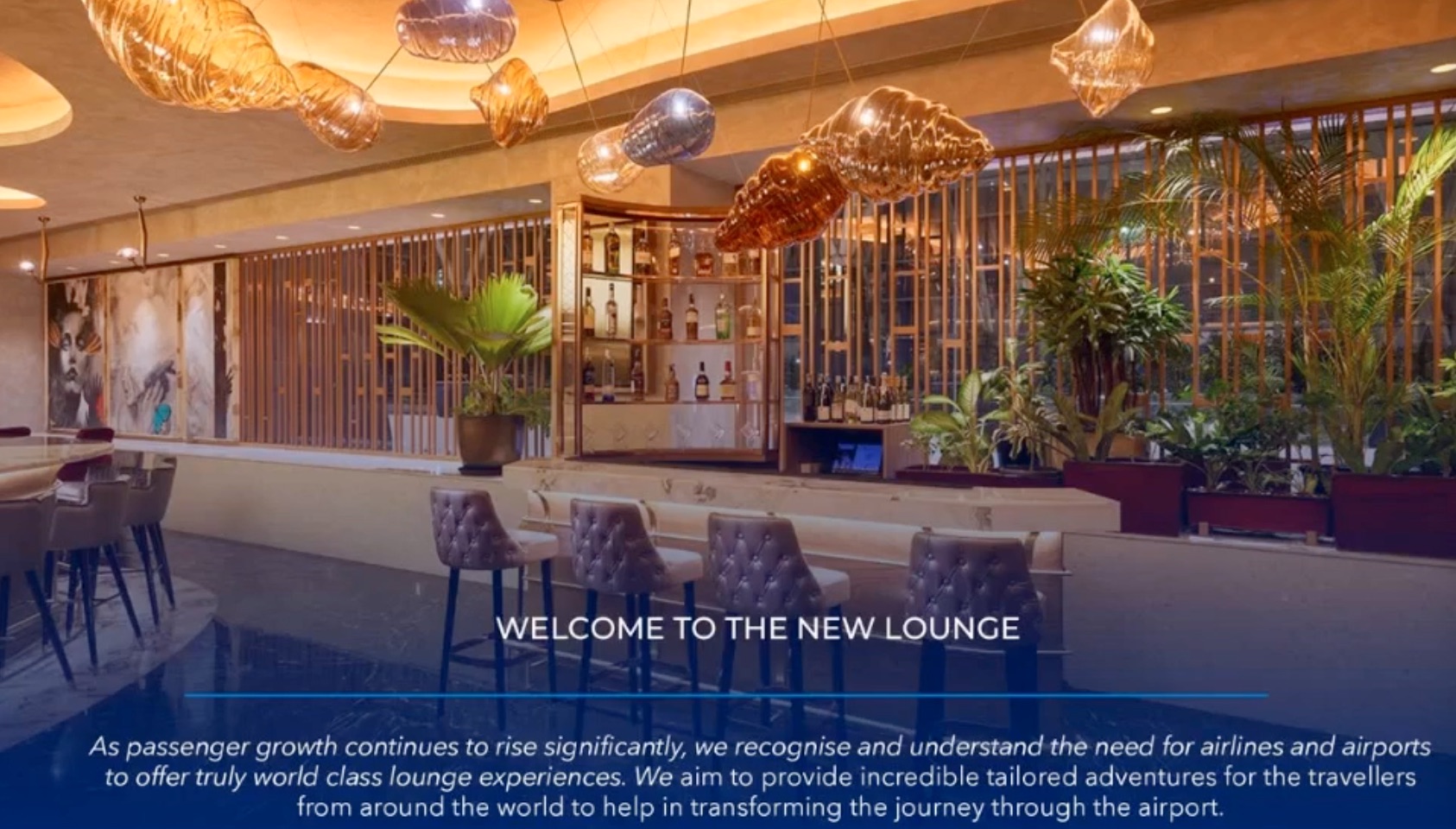
Kapur then showed a tantalising presentation of the new 080 lounge concept in Bangalore International Airport. He said, “The new lounge in Bangalore airport follows the concept ‘Un-lounge at 080’. It is filled with culture, local artistry and inspired by the beauty of nature. The 080 lounge is an ode to the garden city and named after the trunk dial code of Bengaluru, 080. The heart of the offer is luxury and personalisation.”
The F&B experience were designed as fine dining experiences and features premium fitouts, menus designed by celebrity chefs and a curation of fine drinks, served by experienced bartenders.

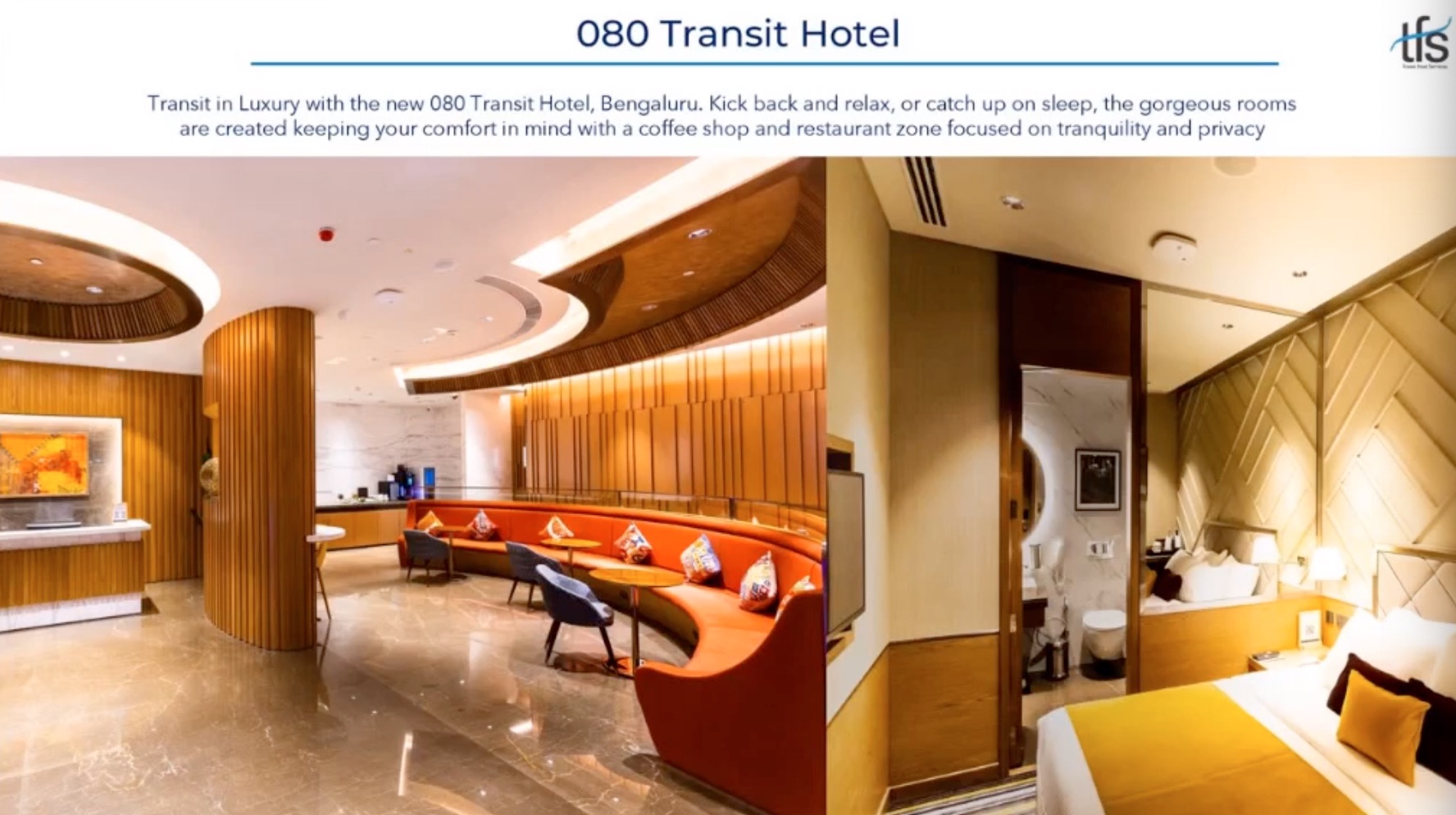
The striking new lounge comprises ten curated spaces that offer a multitude of experiences. There is a whisky lounge, a reading lounge launched in partnership with Relay, VIP lounge, fire lounge, cinema room, wellbeing zone, welcome suite and a transit hotel complete with café and restaurant. Describing the new lounge, Kapur said: “No expectation is too small, no need is left unattended.”
Travel Food Services has also partnered with SSP to open six new lounges in Malaysia, which will have art walks, wellness spas, reading rooms, relaxation zones and a virtual golf zone. “The concept is to create bespoke travel experiences that feature a blend of modern, dynamic and traditional designs,” Kapur said.
Offering a final word on Travel Food Services’ expansion, Kapur said: “We have a very exciting pipeline, including new lounges in Malaysia in partnership with SSP. In Bangalore, we are doing a series of new F&B outlets in Terminal 2. This includes Indian concepts, curated concepts and plenty of firsts such as new Jamie Oliver and James Martin restaurants.”
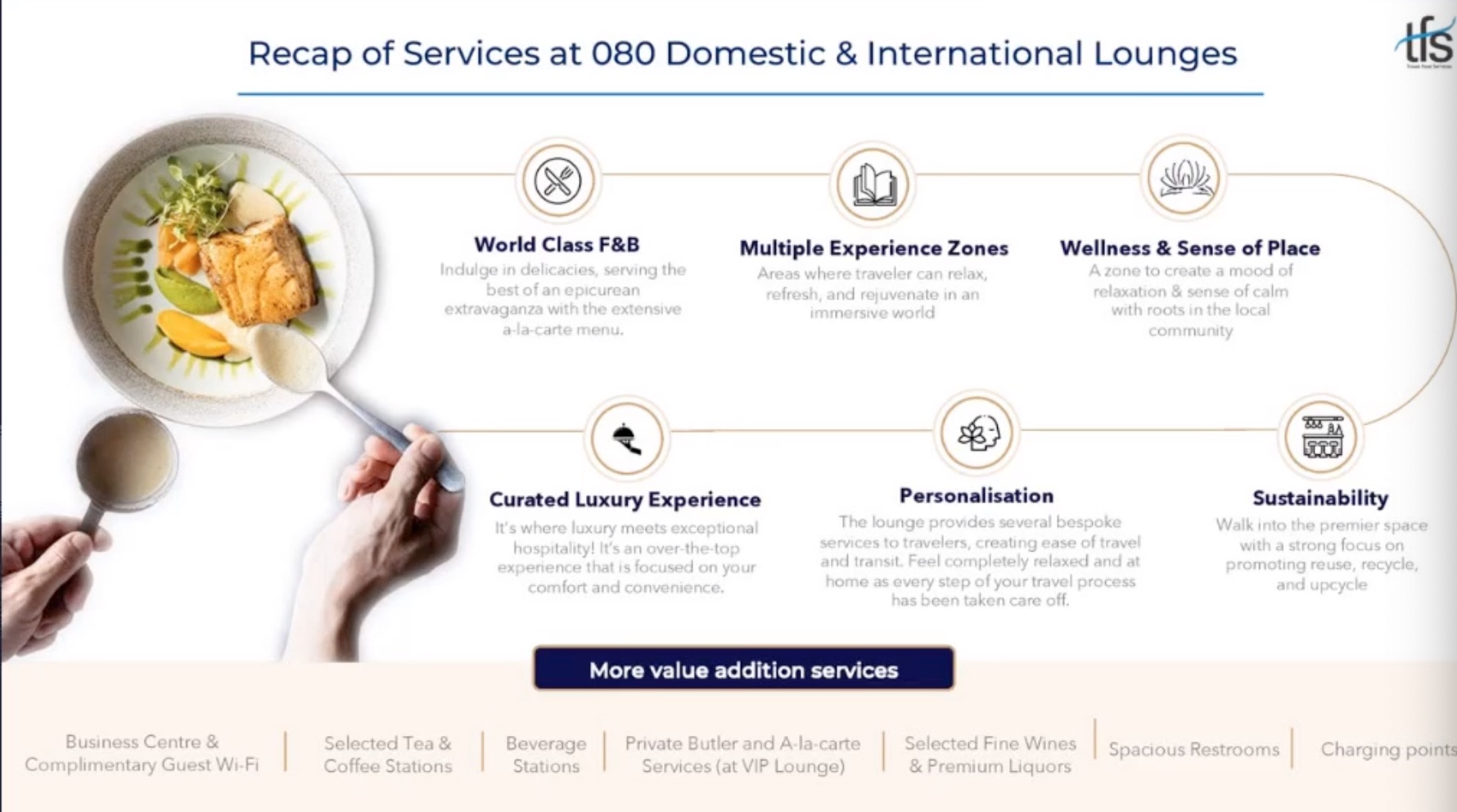
Profiling the Bangalore ‘terminal in a garden’ (04:30 EST 10:30 CET 16:30 HK)
FAB viewers were treated to a preview of a spectacular new food & beverage offer inside the new Terminal 2 (‘Terminal in a garden’) at Bengaluru Kempegowda Airport, set to open to passengers this December.
Dermot Davitt was in the engaging company of three members of the Bangalore International Airport Limited commercial team: Kenneth R. Guldbjerg (Chief Commercial Officer), Pravat Kumar Paikray (Assistant Vice President – Commercial Development) and Saurabh Singhal (Assistant General Manager – Commercial Development).

Via a presentation, we saw the remarkable F&B offer – with very strong sustainability credentials – which is taking shape in the new terminal.

Featuring is a wide range of dining venue types from local Indian and international brands, including celebrity chef restaurants from Wolfgang Puck, Jamie Oliver and James Martin. Among the concessionaires is HMSHost International, which will operate 14 F&B outlets in the new terminal.

Sustainability was prominent in the briefs given to potential partners in the T2 F&B tender process, and Paikray revealed that every partner “came forward with open arms” to embrace it.

He said: “We are so proud that the partners took two steps forward in terms of sharing our vision with us. We had an incredible response for our tender process, not only in the form of tender participation, but also in terms of the uniqueness of the proposal, investment commitment, even in terms of the financial proposal. It exceeded our expectations and it has even exceeded the pre-COVID levels as well.”
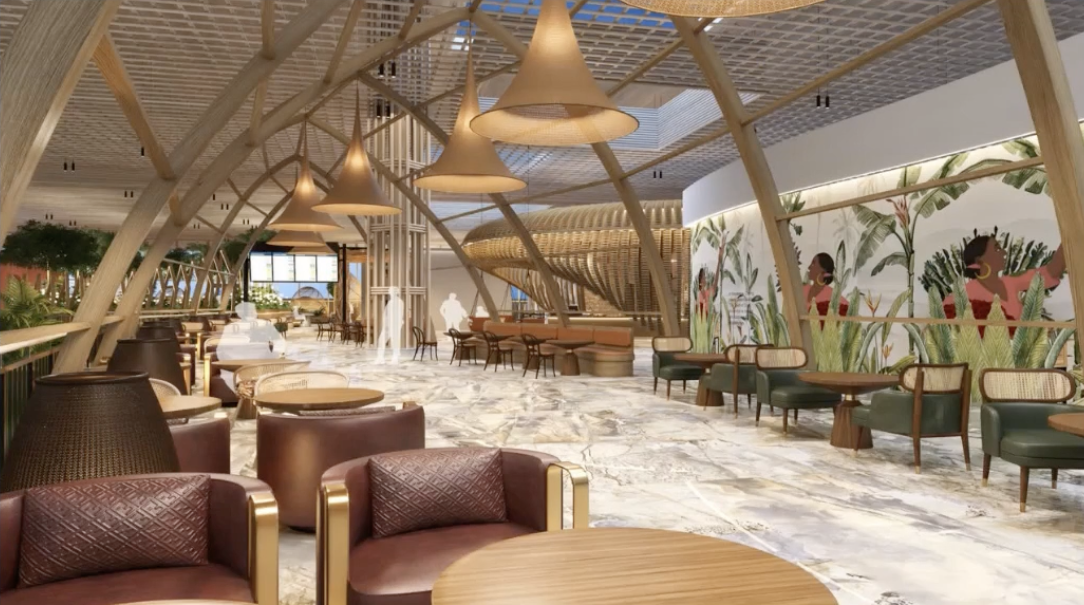
With the tenders being released at the height of the COVID-19 pandemic, Bangalore International Airport Limited took an enterprising risk and reward approach to the F&B commercial contracts. The contract terms include that should predicted passenger levels fall below 80% of the forecast, no minimum guarantee will be payable by the commercial partners.
Paikray said: “We have used a progressive calibration model where we have taken ownership of delivering the passengers and all our commercial terms in the tender process have been linked to the passenger base. All contracts are based on this new progressive model, without any exceptions. That gives confidence to the partners.”
Lagardère Travel Retail on what sustainability means in food service (03:00 EST 09:00 CET 15:00 HK)

‘What sustainability means in food service’ opened the sessions for day two, where guests heard from Lagardère Travel Retail Group EVP Foodservice & CSR Mélanie Guilldou.
Lagardère Travel Retail is a leader in food service, recording €1 billion in sales in 2019. It is present in 24 countries, operating 1,100 outlets across 118 airports and 155 railway and metro stations.
Guilldou discussed Lagardère’s PEPS (Planet, Ethics, People, Social) CSR strategy. She said: “As a leader in travel retail, we are aware of climate change issues and our industry’s impact. However, we know we can make a difference by making travel more responsible and creating more conscious and sustainable experiences.”
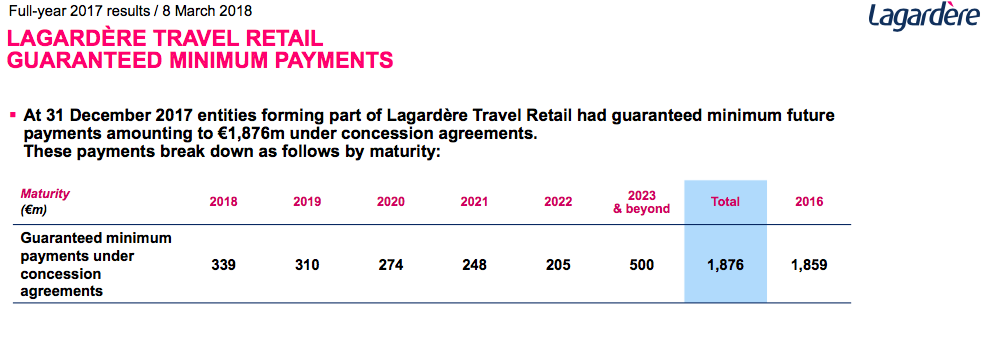
Planet is about reducing carbon emissions, waste and promoting responsible packaging. Ethics is about developing local food and product sourcing, promoting responsible products and cultivating ethical behaviour.
People is about ensuring security and wellbeing at work, promoting employee engagement and fostering diversity and equal opportunities; while Social is about supporting local communities, volunteering and making targeted donations.
Guilldou also discussed Lagardère Travel Retail’s sustainable goals for 2025. By 2025, it has pledged that 100% of the countries it operates in will have dedicated waste reduction programmes in place. It has committed to signing 100% of suppliers in its responsible charter, achieving 50/50 gender balance among top executives and having 0.5% of EBIT allocated to donations in that same year. It also plans to have 120 CSR projects rolled out globally.
A focus on diversity & inclusion (11:30 EST 17:30 CET 23:30 HK)
Today’s final session focused on diversity and inclusion within the airport concession space with guest speakers Los Angeles World Airports Deputy Executive Director Commercial Development Dave Jones; Unibail-Rodamco-Westfield Executive Vice President and Group Director, Airports Mike Salzman; and Enjoy Repeat Inc Founder & CEO and Concord Collective CEO & Managing Partner Greg Plummer.
Opening the session, The Moodie Davitt President Dermot Davitt pointed out that minority-owned small business Concord Collective made history earlier this year at Los Angeles International Airport (LAX) as the first Airport Concessions Disadvantaged Business Enterprise (ACDBE) business to take over the entire portfolio of a major food & beverage concession operator.
The three representatives of the companies involved in the venture detailed their determination to offer a pathway for smaller, local, minority players to manage major airport dining concessions.

“Every day comes with something new,” Plummer said. “In the talent recruitment area, we have really focused on bringing in new managers who haven’t had a huge amount of experience in management but they have had experience in F&B. The intent was to create a fresh start.
“We didn’t want to take the same old approach with managing this business. I am really proud to say that 90% of our management team has come from frontline positions. We have seen people with fresh ideas, fresh perspectives and not necessarily the same ethos when it comes to management as it was before.”
He underlined the huge opportunity available for minority players in airports and the positive “ripple effect” on other businesses offering related services.
Jones described the F&B collaboration at the Los Angeles hub as “monumental”, lauding the Concord Collective model as “exactly the type of thing we need to see more of”. “We want this to be the model. We want to replicate this and find more Greg Plummers out there who want to join us,” he said.
Jones added that Los Angeles World Airports is considering solutions to the challenges of financing and capital costs.
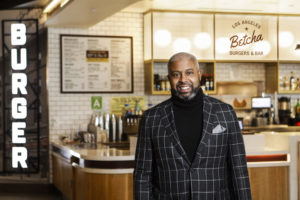
Salzman applauded Concord Collective’s “vision and foresight to buy into the business at a time when many people were retrenching”. “What Greg has accomplished here is perfectly consistent with our vision as a developer in the airport space. We like to see local owners of businesses execute and ultimately succeed in the airport environment.”
All three speakers emphasised the key role creativity plays, along with education, respect and strong partner relationships to overcome challenges which include rocketing construction and labour costs.
“The industry is more collaborative than ever before, working together. It takes passion. This business is really, really tough and like others has its ups and downs. You have to maintain mutual respect and work towards solutions,” Plummer said.
Jones added: “LA is a diverse city, culturally, racially and economically and we want the airport to reflect that. The airport is under massive renovation right now [building up to the 2028 Olympic Games] and we are looking for entrepreneurial spirit, people with great ideas.”
“I see the industry evolving into a better place,” Salzman said. “It must necessarily be better. If we don’t all raise our game, we will all get swallowed up the labour, construction, and financing challenges of this industry. What has got me really optimistic and excited is that I see all of us considering how we think about this differently.”
Talking tenders in Norway (10:30 EST, 16:30 CET, 22:30 HK)
With a series of major tenders under offer or planned at Norway’s airports, it was timely to feature a session involving Avinor Group to discuss its updated F&B and retail plans.
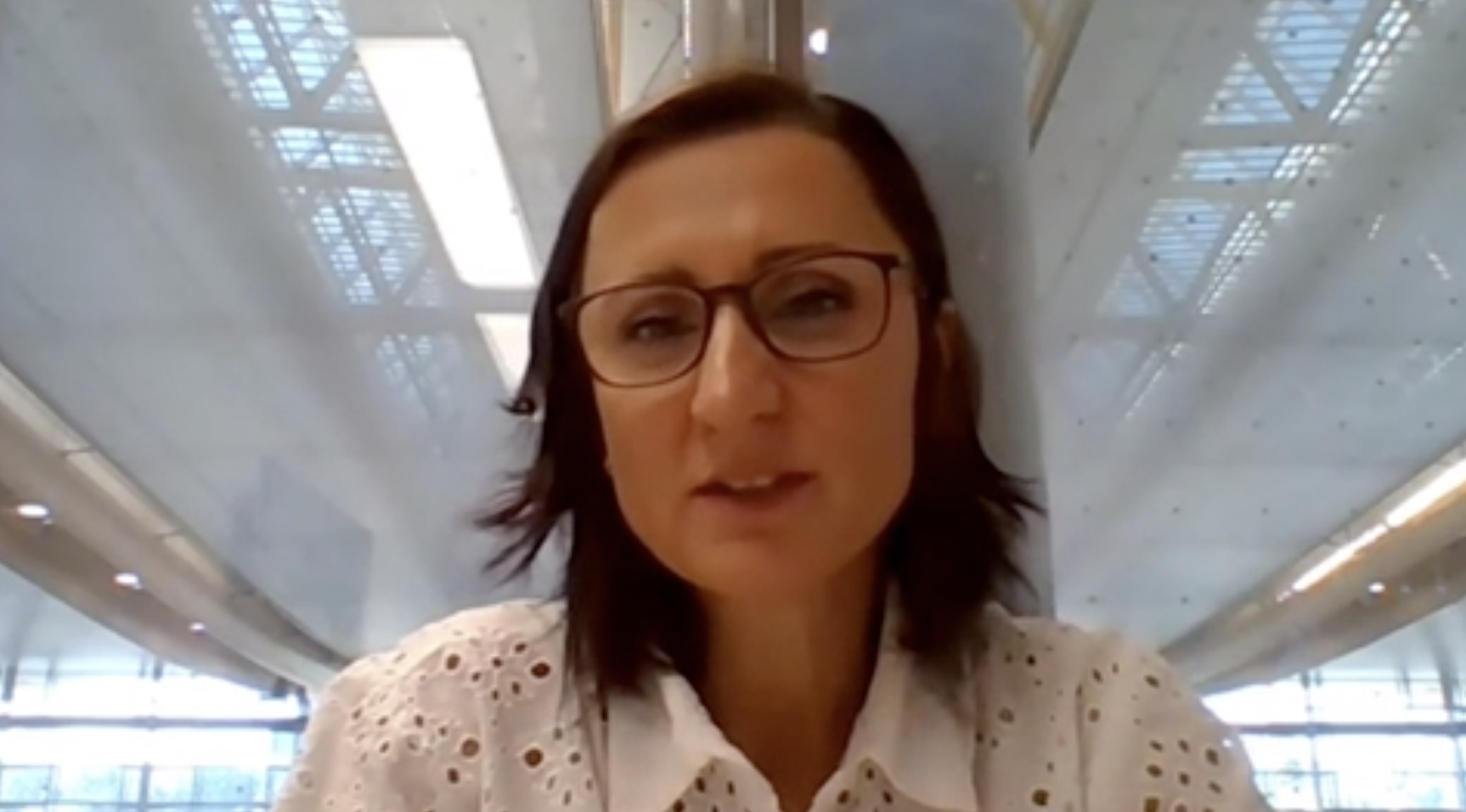
Commercial Director Terminal Areas Iskra Skram spoke to Dermot Davitt about upgrading the food offer, notably through localisation and Sense of Place. She also highlighted value for money, custom-centricity and flexibility, digitalisation and great customer service as other pillars in the strategy. Sustainability too fits into the strategy as a core focus.
Skram also addressed what the airport will be seeking from the next round of tenders for dining contracts at key locations, led by Oslo Airport but also at Trondheim and Stavanger. Oslo and Stavanger will be tendered in 2023, it is expected, with Trondheim before that, later in 2022.

She noted that the airports company had adopted a new approach to risk and reward. “Risk reduction, variable rent and flexible terms” are the watchwords, Skram said.
She also revealed that the latest travel convenience tenders, which include a strong F&B component (with fresh food), have been awarded to WHSmith in partnership with a local brand, with existing partner SSP winning several other packages.
Roadmap for recovery: the Autogrill view (09:00 EST 15:00 CET 21:00 HK)
Two prominent leaders from the Autogrill Group – CEO Europe Andrea Cipolloni and HMSHost International CEO Walter Seib – shared their take on the challenges facing the travel food & beverage sector in conversation with Dermot Davitt.
Cipolloni presides over 663 F&B venues in European airport, railway and motorway locations. Addressing current challenges, he noted that airport F&B customer profiles have changed as we emerge from the COVID crisis, suggesting there is a need to better cater for the categories of Millennial and Gen Z travellers.

He said: “The more leisure and less functional nature of today’s travelling makes stronger demands for premiumisation, authenticity and personalisation together with reasonable value for money. For these travellers experience is king, and it should be upscale, personalised, sustainable and Instagrammable.”
He cited the first Eataly store in an airport, at Rome Fiumicino, as an example of how these needs are already being met. Run in partnership by the brand and Autogrill, the venue covers 2000sq m, and with 300 seats is the largest of its kind. It offers craft pizza and pasta complemented by several F&B corners serving street food or regional Italian specialties.
“This has all been conceived to give travellers the opportunity to appreciate Italian food and beverage excellence, working closely with a brand [Eataly] which is a symbol of Italian quality,” Cipolloni said.
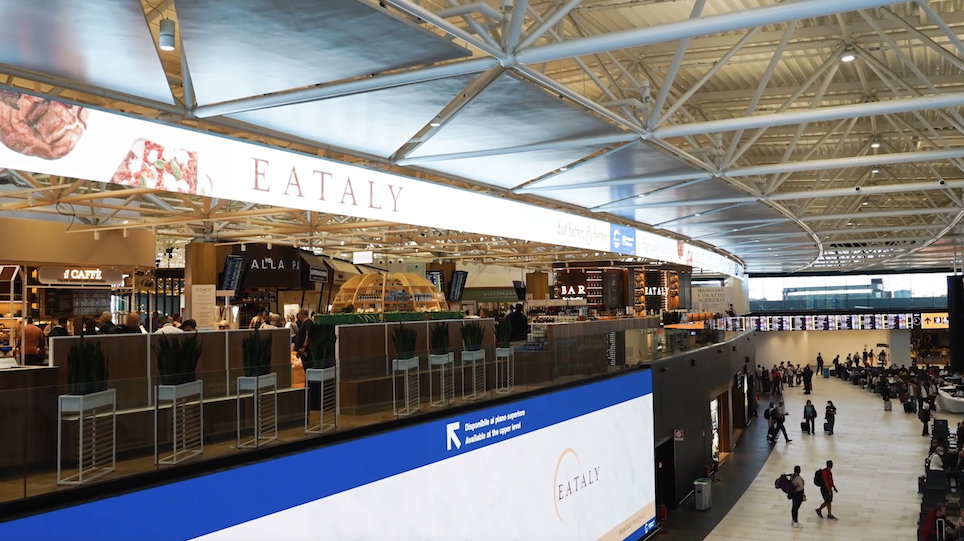
Discussing how airport F&B partners worked together in the face of the COVID-19 crisis, Cipolloni said: “The pandemic pushed us to manage emergencies in a flexible and smart way. And landlords did that in various parts, recognising the severity of the situation and making efforts to meet the needs of F&B operators in very critical moments.
“This experience marked a turning point for me. The challenge of the pandemic has made evident our interdependence, as well as the great capability we have to join forces and think outside the traditional landlord/concessionaires relationship.”
He added: “I believe the cooperative approach imagined during the pandemic should characterise also the current phase in which our business is not so exposed to external stress.”
HMS International currently operates more than 600 F&B stores, across more than 40 airports, 35 train stations, and seven shopping malls in Europe, Asia Pacific and the Middle East.
CEO Walter Seib highlighted some exciting new HMSHost International F&B projects completed or in progress in airports in Bangalore, Doha, Kuala Lumpur, Australia’s Gold Coast and Stockholm which he believes will set new standards and drive his division’s financial performance to a new level.
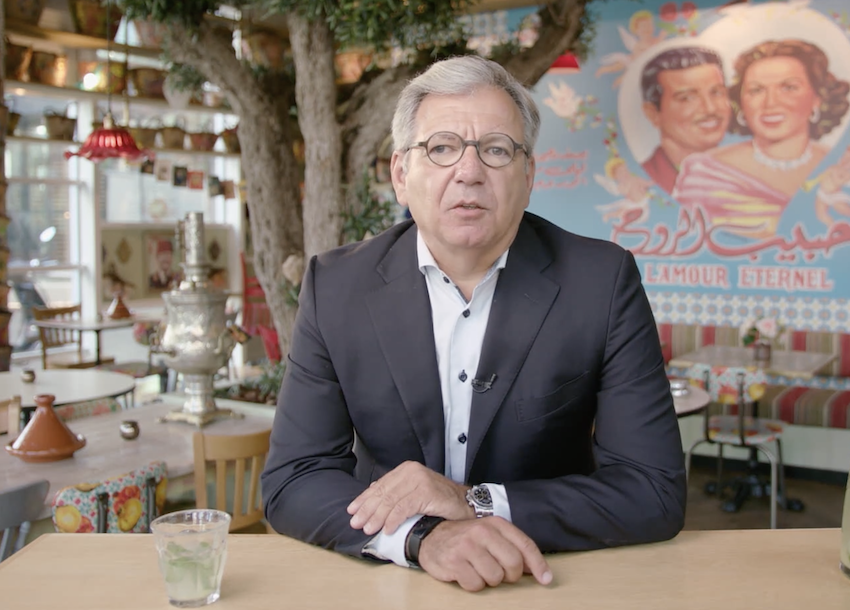
He noted that in some countries, HMSHost International’s business has already recovered to catch up with 2019 revenues this year, and in some cases significantly exceed them. He said: “Our teams are all optimistic. The market is picking up and we are coming back stronger than ever before. The changes we made during COVID, the lessons we learned, and the innovations we developed have all helped achieve this.”
Asked for his view of how travel F&B industry relationships have changed and what they need to achieve to align the interests of all parties in the future, Seib replied: “Since 2019, we have said consistently – we are in this together. The airport concession business is not a place for silos, we are interdependent on one another and we must work together to create a comfortable, inspiring and safe environment for travellers.”
He added: “More than an environment, it is an experience. And it is our collective responsibility to reinvent the customer journey for our guests and to work together as we seek excellence, drawing on each other’s strengths.”
The changing face of food at Heathrow (08:00 EST, 14:00 CET, 20:00 HK)
In the first of several airport company interviews at FAB 2022, Heathrow Retail Director Fraser Brown spoke candidly to Dermot Davitt about the pace of recovery, the challenges for commercial partners and the changing face of food & beverage at the London hub.
Heathrow is predicting 54 million passengers for this year, or about 67% of pre-pandemic numbers. “With the increase in leisure passengers we are seeing over 80% or even on some days 90% of previous volumes, but we expect that to dip down over the Winter months.”

He advised caution on the outlook, saying that airline schedules were changing and noted that the cost of living crisis plays heavily on the economics of flying.
“People need to reflect on where they are in their specific markets, be optimistic but also be hard headed about what might be coming down the track. We can be realistic without being pessimistic.”

Pre-COVID Heathrow had about 350 retail and F&B units, of which around 70 were F&B. Within this, about 20% closed but positively, the other 80% could open once restrictions were dropped.
Brown said: “It’s not often that a dining unit comes up at Heathrow so it has been an opportunity for some businesses that have a vision for the long term and candidly, that also have cash. We have seen it in brands such as Elan, a very Instagrammable, different offer we have installed in our in T3 luxury zone. We have seen it with Vagabond, a wine-led casual dining outlet where you can single-serve wine with a swipe of your credit card. We have also introduced new cuisines, including an Indian restaurant landside in T5 for the first time. And an authentic Asian restaurant in T2, Shan Shui.
“So we have added capacity in F&B with more units, and also provided extra choice by trying new things.”
He added that demand in F&B is high. “What we are seeing is a few factors playing out. Some passengers are nervous about what the experience will offer, having seen the news reports about airports not being as slick as they were before. So they are coming to the airport early.
“They are then getting through the processes relatively smoothly, which means longer dwell times. Once there, they have more time and a desire to treat themselves, and F&B is an affordable treat. We are seeing more people come into our sit-down restaurants, and many are trading up.
“What we’re also seeing is people being unclear about what the airline will offer onboard so that is being factored into what they buy. Many will purchase for a second time via grab & go to take onboard.”
Brown added that, while business remains a challenge, bid levels for recent tenders have been at ‘normal’ levels – an encouraging signal of business returning.
Interview: SSP Group CEO Patrick Coveney (6:40 EST, 12:40 CET, 18:40 HK)
SSP Group CEO Patrick Coveney engaged in a wide-ranging discussion with Dermot Davitt on the changing nature of the airport F&B business.
Coveney took up his post at the start of April this year and has been travelling the world to visit SSP locations (in 21 markets to date) with the mission of increasing his understanding of the airport F&B business and his company’s role within it.
Discussing the airport F&B business model, Coveney said: “We are enormously grateful to both our brand partners, but in particular, our airport client partners for the pragmatism, support and collaboration. It has enabled us to survive COVID and to be equipped to invest in our business and drive forward from here.”

While acknowledging market to market variations, Coveney pointed out that typically commercial contract periods are lengthening and the service offer SSP is being asked to deliver is broadening.
“We’re finding that those two things give us the ability to invest to deliver distinctive solutions to each of our clients,” Coveney said.
Coveney was asked by Davitt when recovery from the crisis will be considered complete. He replied: “I think we are recovered from crisis right now, [with exceptions] we’re broadly back in terms of volumes and passenger numbers. And I think that mindset is important because the answer for what we want to do with our business and industry is not going to be found by trying to replicate what we had in 2019.
“Travellers are different, the air environment is different, brands are different, digital is different… we have to architect concepts and service propositions that work for our clients, and ultimately that work for passengers as they are travelling over the rest of 2022 and into the future. We must configure brilliant F&B solutions that meet those needs.”
The power of partnership (6:00 EST, 12:00 CET, 18:00 HK)
SSP Group CEO Patrick Coveney introduced this key session, which featured colleagues and associates from across the SSP business. The session explored a number of crucial topics around the subject of partnership, including its meaning and the role partnerships played in helping the airport F&B industry to emerge from the crisis.
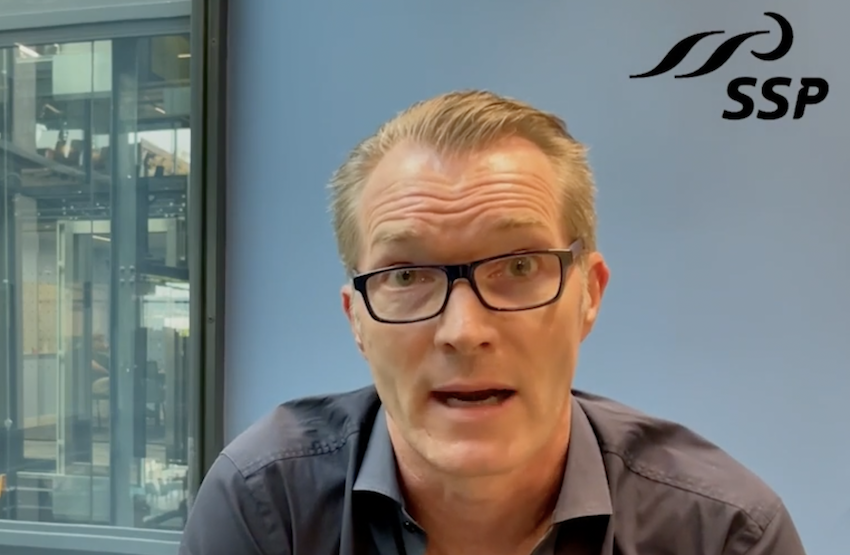
Participants also discussed how the nature of partnerships is evolving, and what were the uniting forces that emerged from the past two years that need to be preserved to ensure the airport F&B sector continues to grow into the future.
Below is a snapshot of what those colleagues and associates said…
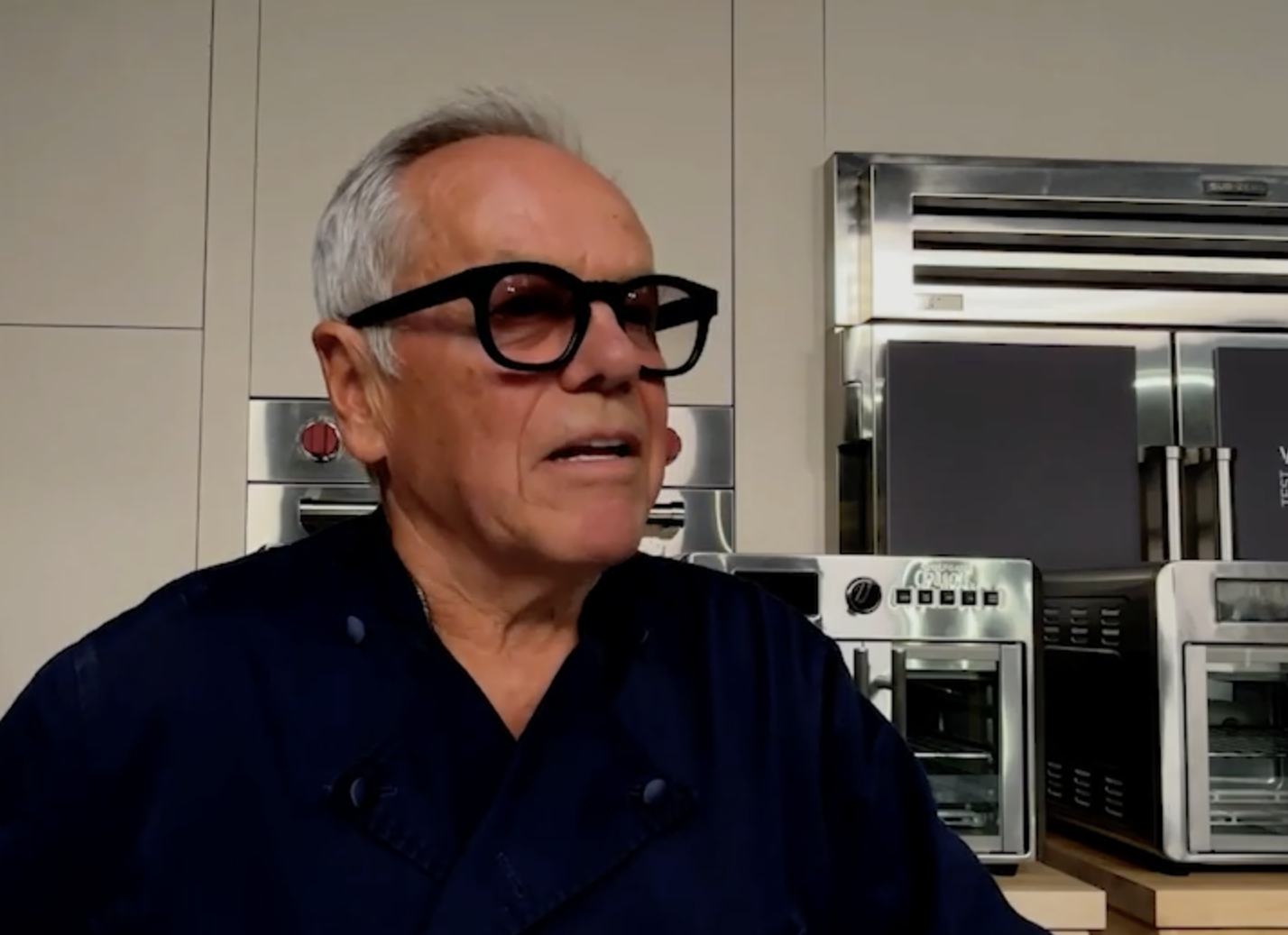
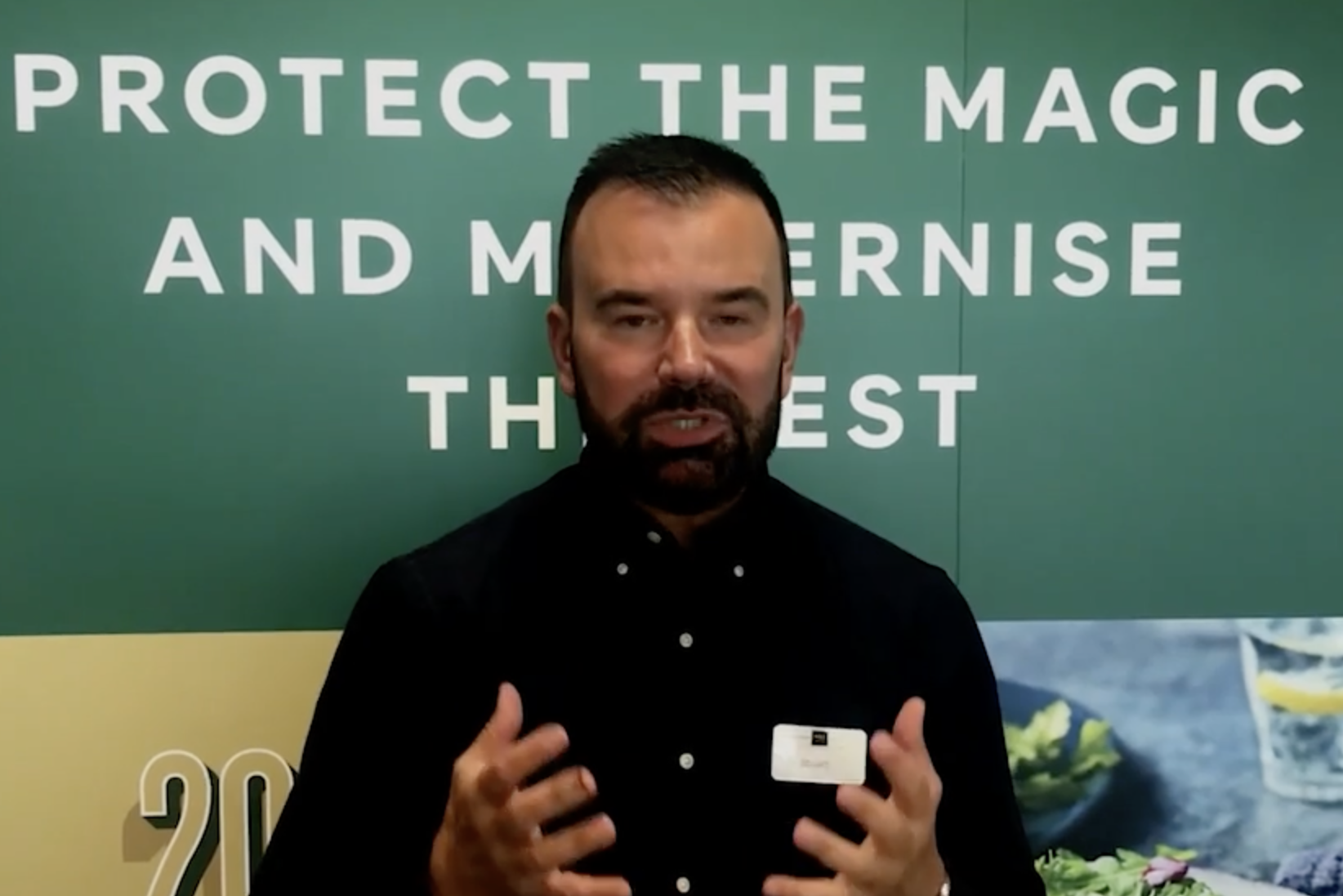


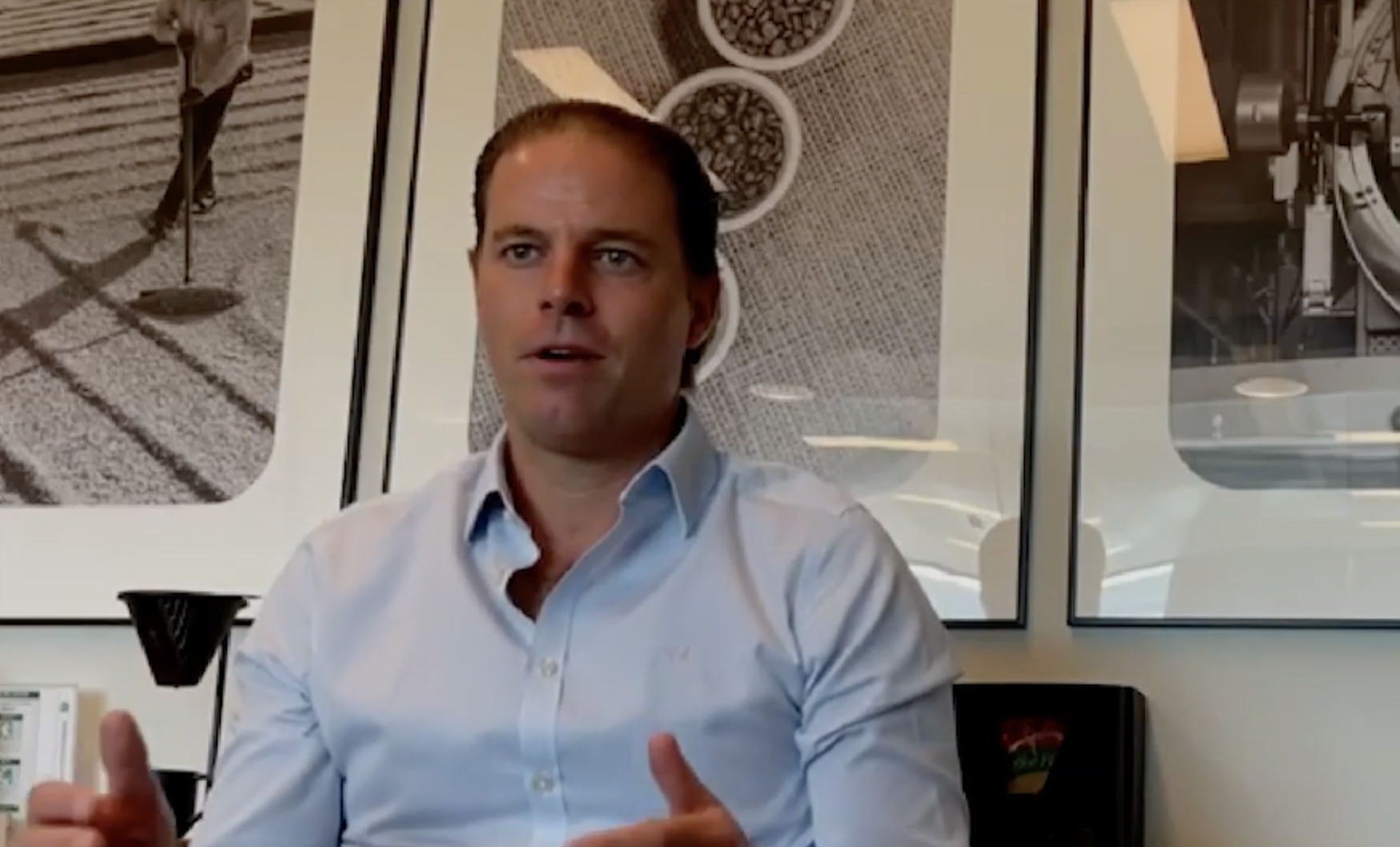
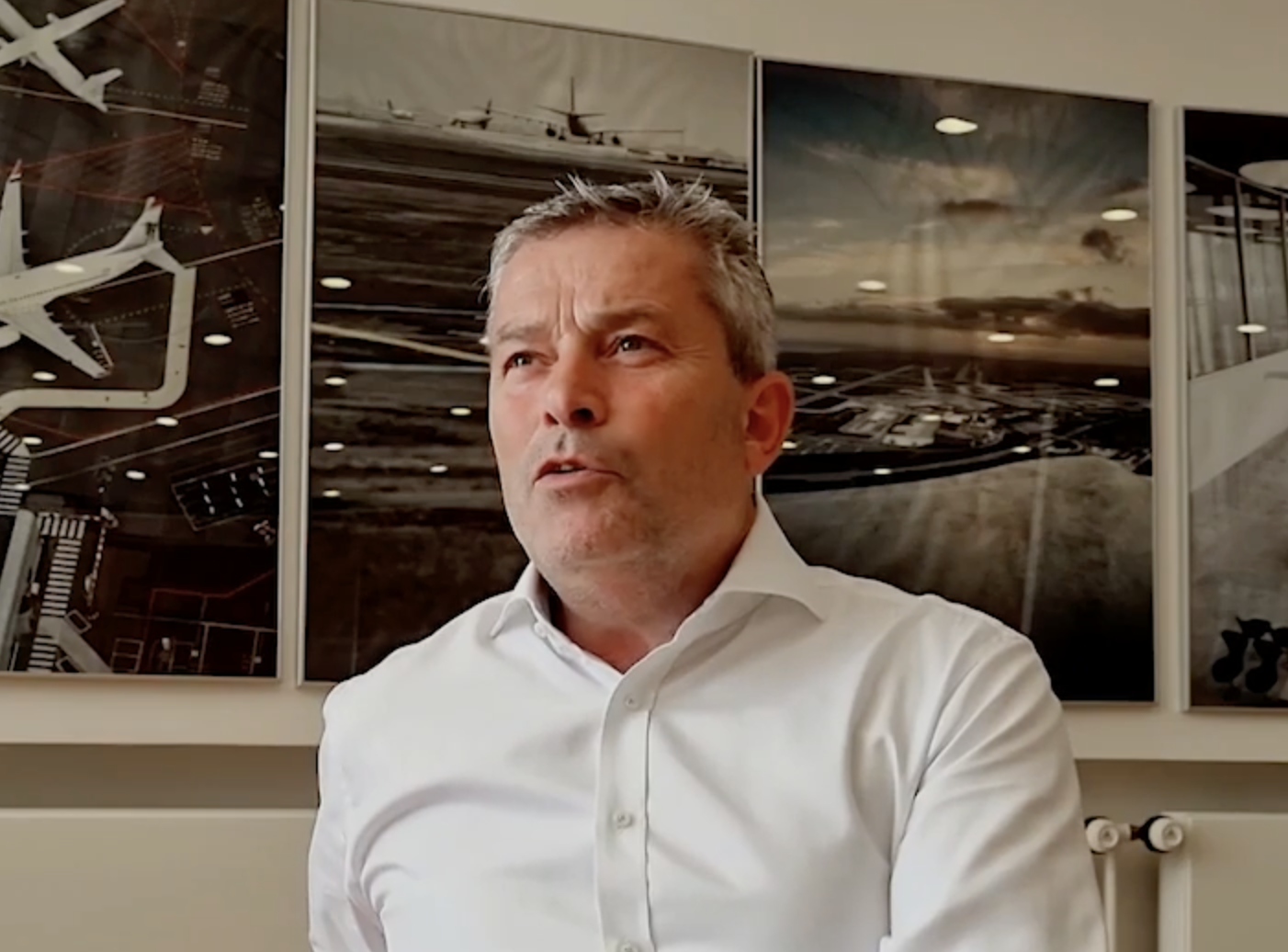





FAB Women (4:00 EST, 10:00 CET, 16:00 HK)

The welcome return of FAB Women proved an inspirational highlight of the early sessions at FAB 2022. Moderated by Ann Elliott Hospitality Consultancy Owner Ann Elliott, it featured some wonderful insights from The Restaurant Group People Director Jacqui McManus and Chef Lorena Garcia about women in leadership.
McManus talked about her leadership style, her biggest influences and the impact of COVID-19 on The Restaurant Group.
She talked about changing the company culture from a centralised head office-driven business to a more collaborative one. “When I started, The Restaurant Group’s reputation was that it was quite dictatorial and driven by support centre head office. There were lots of senior leadership changes, and all the new leaders shared a similar approach which was to be collaborative, supportive and progressive.”
She highlighted the difficulties of working in a male dominated industry, and the steps she is taking to change that both inside and outside the organisation. “There’s still some work to do. However, The Restaurant Group will be a very different workplace if we can keep doing the things we are doing now. The perception of The Restaurant Group three or four years ago versus now shows what can be done in terms of diversity and inclusion.”
Sharing her advice for women who want to work in hospitality and get into top management, McManus said: “Be yourself and be positive. If you want to be part of something, be upfront. Be honest about what you want and keep saying it.”

Venezuelan-born Lorena Garcia is currently one of the US’s leading chefs. She is well known for her numerous accomplishments as a published author, TV host for Emmy-nominated show ‘El Mejor de los Peores’ for Fox Life, as a co-creator, executive producer and host for Nickelodeon’s ‘Food Hunters- Latina America’ and competitor on Bravo’s Top Chef Masters, season four.
Garcia has a successful chain of restaurants, ‘Chica’ in Las Vegas, Miami and Aspen, and the ‘Llorena Garcia Tapas Restaurant’ in Dallas Fort Worth and Atlanta Airports.
Garcia talked about her career and show she shifted from law to cookery, her competitive edge and what it took to succeed in a male dominated world. On how she balances her career as a top chef and media personality with being a mum, she said: “I try to compartmentalise each project. If I am writing my book, that is the only thing I’m doing. If I’m in production, the only thing I’m in is production. My family and restaurants always take priority, so everything falls into one big lifestyle.”
Commenting on her leadership style, Garcia says, “In sports, I usually end up being the leader even when I’m not assigned to it. I’ve always been a leader that leads by example and has a clear direction.
“I’m all about collaboration,” she added. “In my kitchen, a collaborative approach is so important because it motivates your crew members to be creative and engaged.”
On succeeding in a male dominated industry, Garcia said: “One of the biggest challenges in the culinary world is being a woman. Automatically because of gender, I was in a position of inequality. However, I never played the victim. I created opportunities and changed the narrative.”
Areas Cares (3:00 EST, 9:00 CET, 15:00 HK)

In the opening session of the 2022 FAB Conference, Areas Chief Corporate Officer Montse Adán talked about the food and beverage company’s ‘Areas Cares’ ESG strategy and the crucial role of People in its business approach. She said: “Our people strategy is based on four pillars: Feel Like Winners, Get Recommended, Have the Best Service and Accelerate Our Goals.
“Feel like Winners is dedicated to all our teams. We want them to feel like winners especially after this difficult period. We care for our people and we are continuously striving to make Areas a great place to work, while also positively impacting our community. Our learning, development, and health and wellbeing initiatives are at the heart of our people strategy.”
Commenting on the aviation and travel retail industry’s ongoing challenge with recruitment and retention, Adán said. “Everyone is struggling with retention. To address this, we have launched global employee branding campaign adapted to each country. We’re also launching a global people engagement survey to enhance company culture and alignment to our corporate values.

“We are now working on a new edition of the Areas worldwide challenge, which is an internal competition that rewards our salesforce. Beyond that, we offer a career plan and necessary training for our employees to fulfil their maximum potential. They can take advantage of our internal tool ‘My Areas’ for learning and internal communication. We are also launching an international executive leadership programme for middle management to identify employees with the potential to fit our succession plan.”
Adán discussed the three pillars that are driving the Areas Cares roadmap: people, health and planet. “We are committed to enhancing the lives of thousands of people as we grow our business and ensure the same level of access for all our employees. Our goal is to improve the health of over 350 million travellers, while providing sustainable procurement for our products. We our commitment to reducing the environmental impact of our more than 1,800 points of sale on the planet.”
2:00 EST, 8:00 CET, 14:00 HK
The eagerly anticipated Airport Food & Beverage (FAB) Conference begins today (12 September) and features an exciting, diverse line-up of speakers representing the world of travel dining.
The pillar themes are: People, Planet, Partnership and Progress, with sponsorship support from leading industry concessionaires Areas, Autogrill/HMSHost and SSP.
 Registration remains open and can be made at this link. The event will feature a mix of live sessions and filmed interviews (full agenda here).
Registration remains open and can be made at this link. The event will feature a mix of live sessions and filmed interviews (full agenda here).
Day one starts at 0855 CET/14.55 Hong Kong time with an introduction from The Moodie Davitt Report, Sponsors Areas, Autogrill/HMSHost and SSP will each host sessions in which they deliver their insights into the dynamics that will drive the recovery and next wave of market growth.
Speakers in these separate sessions include Areas Chief Corporate Officer Montse Adán, SSP Group CEO Patrick Coveney (and many of SSP’s partners), plus Autogrill Group CEO Europe Andrea Cipolloni and HMSHost International CEO Walter Seib.
Day one will also feature the return of FAB Women, where we will hear the voices of leading women in F&B about their experiences in the sector. Speakers include Ann Elliott Hospitality Consultancy Owner Ann Elliott, The Restaurant Group People Director Jacqui McManus and Chef Lorena Garcia.
A key session later will address how F&B is trending at Heathrow Airport, with Retail Director Fraser Brown. Representing Norwegian airports group Avinor, Commercial Director Terminal Areas Iskra Skram will talk about the latest and forthcoming round of tenders for dining contracts at key locations.

Diversity & inclusion is also on the agenda, with a case study from Los Angeles International Airport on how to involve minority-owned concessionaires in the airport business.
Los Angeles World Airports Deputy Executive Director Commercial Development Dave Jones, Unibail-Rodamco-Westfield Executive Vice President and Group Director Mike Salzman and Concord Collective CEO Greg Plummer take part.
Day Two
‘What sustainability means in food service’ will lead off day two, where guests will hear from Lagardère Travel Retail Group EVP Foodservice & CSR Mélanie Guilldou.
Travel Food Services Executive Director Varun Kapur will talk about the company’s strategy and the new Indian consumer. Senior executives from Bangalore International Airport Limited will address the new ‘terminal in a garden’ concept and how the dining offer has taken shape.
The role of sustainability in F&B outlet design and how it feeds into the wider consumer experience will be discussed by Smart Design CEO Nick Baker and Interior Designer & Project Manager Jill Danis.
In a special session co-organised by The Moodie Davitt Report and the Airport Restaurant & Retail Association, leading airports and concessionaires discuss the challenges of labour, debt and revenue, and what ‘recovery’ looks like to each of them. Speakers include Crews Hospitality Managing Partner & CEO Nicholas Crews, SSP America Deputy CEO Pat Murray, Salt Lake City Corporation Director of Airports Bill Wyatt and Port of Seattle Acting Aviation Chief Operating Officer Dawn Hunter.
Chef, mixologist and pioneer Kathy Casey will explore current and emerging trends in F&B and how these translate into the world of airports and travel retail locations.
The event concludes with the eagerly awaited FAB ESG & Superstars Awards, which shine a light on teams and individuals that have gone above and beyond the call of duty in the past difficult year for the sector.
Click here for registration and more details about the event.





